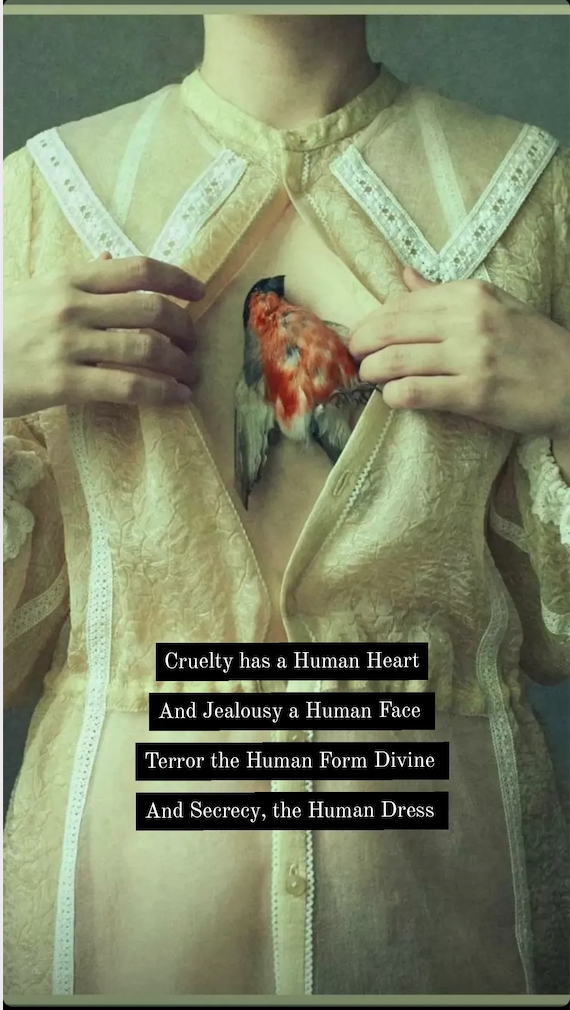Greetings everyone!
My name is Noor and I already graduated back in 2020 and have been working and traveling (mainly within Canada thanks to COVID). I was named after Queen Noor of Jordan, and a fun fact about her is that she was amongst Princeton University’s first female graduates. In my free time I like making hat pins (they were very popular during the Victorian era) which I like gifting to friends and family and most recently gifted one to the great-granddaughter of Ottoman Sultan Abdulhamid II. I also love baking and cooking. As a Palestinian, speaking out about the Palestinian cause and other causes around the world is of prime importance to me, even if that means losing friends and job prospects.
I decided to take some additional classes at UBC to keep myself busy. I figured I’d learn a new language (German) to boost my cognitive functions and take this class because I love literature (or world literature at Goethe called it). During my undergrad, I took English literature and studied German authors in English like Nietzsche and Goethe. I was also introduced to Russian authors like Dostoevsky but not many European Romantic authors (except for a few continental philosophers like Sartre and Camus) so when I saw this course I was immediately drawn to it. I came across Marcel Proust many times during undergrad but sadly never read any of his works.
My dream is to one day read all of these great works in their original language because no matter how good the translation is, it will never capture all the nuances of the original: cadence, phrasing, play on words, etc. Also, all translation involves a degree of interpretation, as not everything can be translated exactly.
Finally, I would have to agree with Dr. Jon that the idea of a Romantic world is something that is arbitrary and manmade. If you study history, you will know that the idea of Europe was really a response to the Muslim conquests and that Europe was literally named after a Phoenician princess. Furthermore, the Roman Empire was an Eastern empire with several Middle Eastern/Arab emperors. Interestingly, I was just reading an article this morning about the Etruscans who founded the Roman Empire where a genetic study finally revealed their origins–they were descended from pastoralists who moved into the region from the Asian steppes.
I am very excited about this course and looking forward to reading your blog posts and meeting some of you in the flesh during the course of the term.

Hi, nice to meet you! I agree with you that the translated versions of the novels won’t capture their full potential!
Hi Noor!
Let me just say that this is one of the most intellectual introductions I have ever read; it was SO LOVELY TO READ! I really loved reading about your goal of reading these great works in their original language; you raise a fantastic point about how translated versions of books will never capture the same degree of originality as the originals (I hope that made sense haha). I wish you all the best with that goal, because I think that it will be not only personally gratifying, but must be some sort of recognizable world goal. From what I am getting from your introduction, I feel like you seem very into literature, literary history and certain contexts in which literature has been created within. I wish you all the best within your academic journey in this course and wish you all the best!